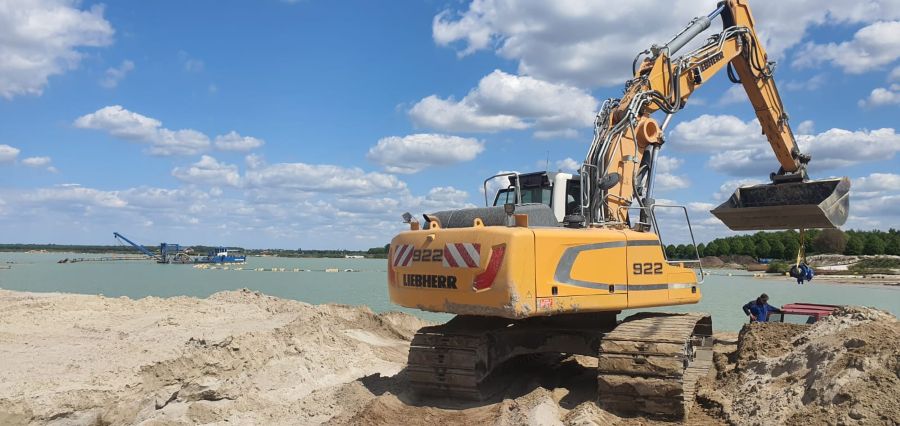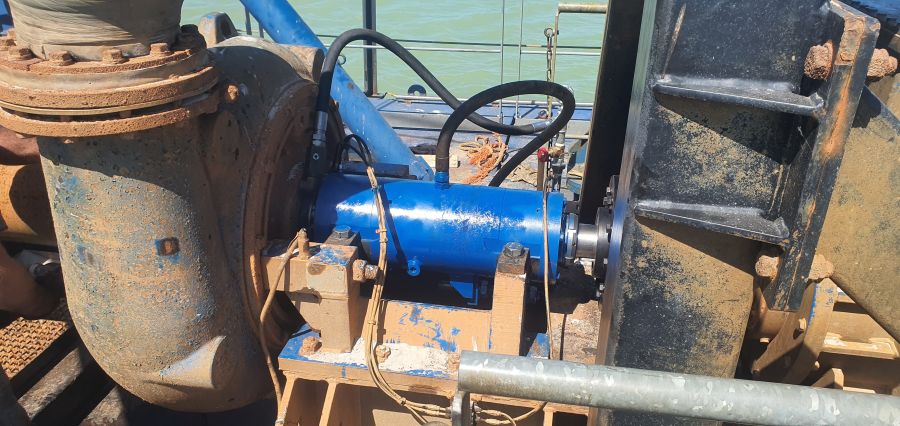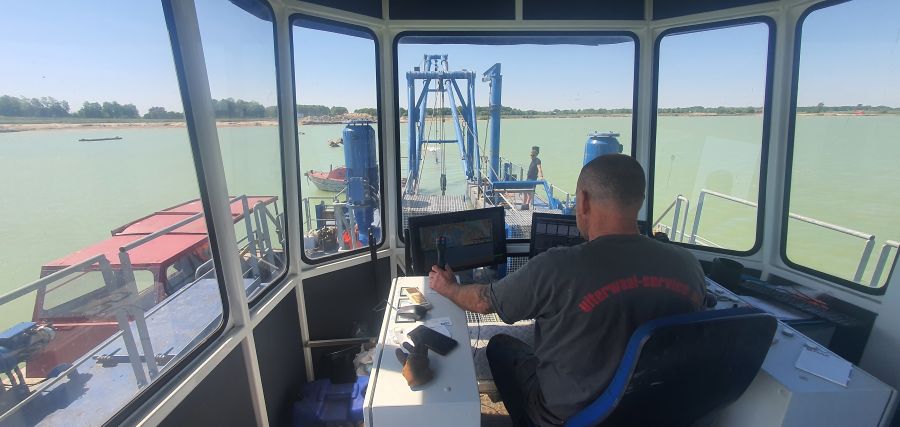May 23, 2025
Field Report – Root Cause Found and Resolved
Emergency Dredger Service Case
We were recently contacted regarding a suspected issue with an electric motor on a dredger. Power consumption had spiked, while production remained minimal—suggesting a serious underlying problem.
An initial inspection suggested a motor fault, but further analysis revealed the true cause: excessive resistance from the pump’s bearing unit. The resistance placed a heavy load on the motor, leading to the abnormal power draw.
On monday, we were asked to step in. While our servce engineer made his way to the site that evening, the on-site team began dismantling the pump and bearing unit for inspection.
Our findings:
- Shaft sleeves on both the pump and drive side were severely worn
- Sealing surfaces were damaged, allowing water to enter the bearing unit
- The axial bearing had completely failed due to poor lubrication
- Resulting debris damaged the shaft, bearing housing, and all internal components
The bearing unit was declared beyond repair. We immediately started assembling a new one, though some components required urgent procurement, delaying delivery slightly.
In the meantime, the water chamber was fully overhauled, with all internal components replaced. A week later, our service engineer returned with the new bearing unit and the refurbished water chamber to support reassembly.
Unexpectedly, the impeller clamping element was no longer reusable. After sourcing a new clamping element and separation ring, he returned again a few days later to finalize the reassembly. Testing confirmed everything functioned as expected.
Key takeaway:
This failure could have been prevented through regular inspection of the bearing oil. Contaminated or low oil levels are a clear sign of trouble and should prompt action. Early detection could have limited the repair to just seals and sleeves—avoiding major downtime and costs.
Preventive maintenance saves time, money, and headaches.
Proud of how quickly our team responded and resolved this issue under pressure.







